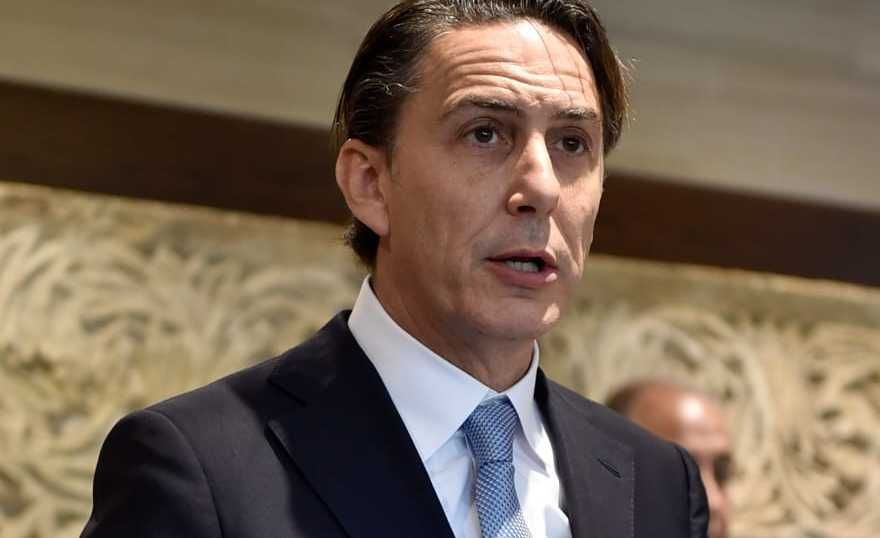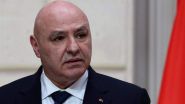
US Presidential envoy Amos Hochstein wrapped up his regional tour on Friday, aimed at promoting an American proposal for a ceasefire in Lebanon, leaving Tel Aviv without issuing any public statements after his meetings. Israeli officials also remained tight-lipped, even as the Israeli military escalated its raids and advanced further into Lebanese territory.
In general, an agreement seems unlikely in the near term, as both Israeli and Lebanese officials have reportedly raised substantial concerns over elements of the US-proposed roadmap, a sentiment reflected in various media reports.
According to sources cited by the pan-Arab networks Al-Arabiya and Al-Hadath, Israeli officials informed Hochstein of their opposition to France’s involvement in the agreement or its participation in the international committee expected to oversee its implementation.
Additionally, the same sources revealed that Israel rejects linking the resolution of six out of thirteen disputed points along the Lebanese-Israeli-Syrian border to the proposed ceasefire deal.
Meanwhile, US-based outlet Axios reported on Friday that no ceasefire on the Lebanese front is expected before next week. Similarly, Israeli newspaper Haaretz, citing Israeli sources, indicated that a potential agreement could take several weeks to finalize.
“We are facing a real opportunity for a solution,” US envoy Amos Hochstein said on Wednesday after meeting with Lebanese Parliament Speaker Nabih Berri, calling the discussions “constructive.” He pledged to continue efforts to “narrow differences” and stressed the need to “bridge the gaps.”
While expressing optimism, Hochstein made it clear that the final decision rests with the parties involved, noting that a solution was “within reach.”
During his two-day visit to Beirut, which began on Tuesday, the US envoy met with several prominent figures, including Berri, Caretaker Prime Minister Najib Mikati, Army Commander-in-Chief General Joseph Aoun, Caretaker Foreign Minister Abdallah Bou Habib, Lebanese Forces leader Samir Geagea, and former Progressive Socialist Party leader Walid Joumblatt.
According to Lebanese security sources, the US proposal outlines a 60-day transitional period following a ceasefire. During this time, the Israeli Army would maintain a presence in southern Lebanon, allowing the Lebanese Army to dismantle the remaining elements of Hezbollah’s military infrastructure.
If a ceasefire is agreed upon, Lebanon and the Hebrew State would then need to enter negotiations on fully implementing UN Security Council Resolution 1701, which grants the Lebanese Army and UN peacekeeping forces (UNIFIL) exclusive authority over areas south of the Litani River, roughly 30 kilometers from the current Israeli border.
However, the American proposal has generated significant controversy, with several of its elements facing strong opposition from both sides.
For Israel, a key post-war priority is to control “sensitive” areas in southern Lebanon, in order to prevent Hezbollah from rearming or launching further attacks. This demand has been firmly rejected by Lebanese officials, who view it as a violation of Lebanon’s sovereignty. Hezbollah’s Secretary-General, Naim Qassem, reinforced this stance on Wednesday, stating that the group would “not accept any ceasefire agreement that undermines Lebanon’s sovereignty.”
In addition, a senior Lebanese official revealed on Thursday that Lebanon had requested amendments to the US proposal, including a quicker Israeli withdrawal from the South and the recognition of both parties’ right to self-defense. The official stressed that Lebanon is insisting on an immediate Israeli pullback once a ceasefire is implemented, allowing the Lebanese Army to deploy across the region. This would facilitate the rapid return of displaced people to their homes, according to Reuters.
Unfortunately, the outcome of these diplomatic efforts remains uncertain. As Lebanon marks the 81st anniversary of its independence, the country continues to face Israeli airstrikes and the persistent drone surveillance overhead, particularly over the capital, casting a shadow over the national day.



Comments